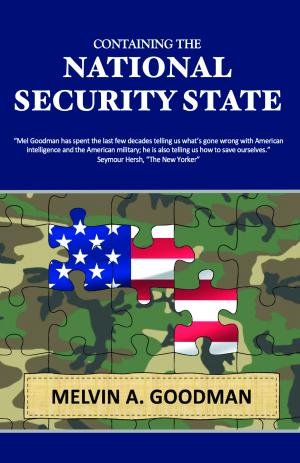Bio

Melvin A. Goodman is a senior fellow at the Center for International Policy in Washington, DC, and an adjunct professor of international relations at Johns Hopkins University. His 42-year government career included tours at the Central Intelligence Agency, the Department of State, and the Department of Defense’s National War College, where he was a professor of international security. His books on international security include “A Whistleblower at the CIA: The Path of Dissent;” “National Insecurity: The Cost of American Militarism;” “Bush League Diplomacy: How the Neoconservatives are Putting the World at Risk;” “The Wars of Eduard Shevardnadze;” “The Phantom Defense: America’s Pursuit of the Star Wars Illusion;” “The End of Superpower Conflict in the Third World,” and “Gorbachev’s Retreat: The Third World.”
He has written numerous articles and opeds that have appeared in the New York Times, the Washington Post, the Baltimore Sun, Foreign Policy; Harper’s Magazine; the Bulletin of the Atomic Scientists; and the Foreign Service Journal. His TV appearances include the PBS Newshour; the Amy Goodman Show; NBC; and CBS. He has lectured at college campuses all over the country as well as to numerous chapters of the World Affairs Council, the Council on Foreign Relations, and various veteran organizations. In 1991, he testified before the Senate intelligence committee in order to block the confirmation of Robert M. Gates as director of the CIA.
Recent News and Latest Book
The NYT Loses Its Editorial Mind
It is time for the mainstream media, particularly the New York Times and the Washington Post, to take advice from Margaret Sullivan, a veteran press critic with both the Times and the Post, and “rededicate itself to being pro-democracy.” In her new book, “Newsroom Confidential: Lessons (and Worries) From an Ink-Stained Life,” she notes that “as our democratic norms foundered, much of the mainstream press was asleep at the switch, and seemed perfectly content to stay that way.”
Biden’s Obsession With China
The report that was released two weeks ago is a predictably superficial rendering of U.S. plans for global cooperation, but contains no original ideas for the U.S. role in doing so. There is nothing in the report that suggests the Biden administration has any ideas for reversing the downturn in relations with China—our most important bilateral relationship—which points to increased bilateral tensions and greater defense spending. There is no indication that we have learned important lessons from the isolationist step of withdrawing from the Trans-Pacific Partnership or the militaristic policies in the Middle East and Southwest Asia that depend on use of force.


